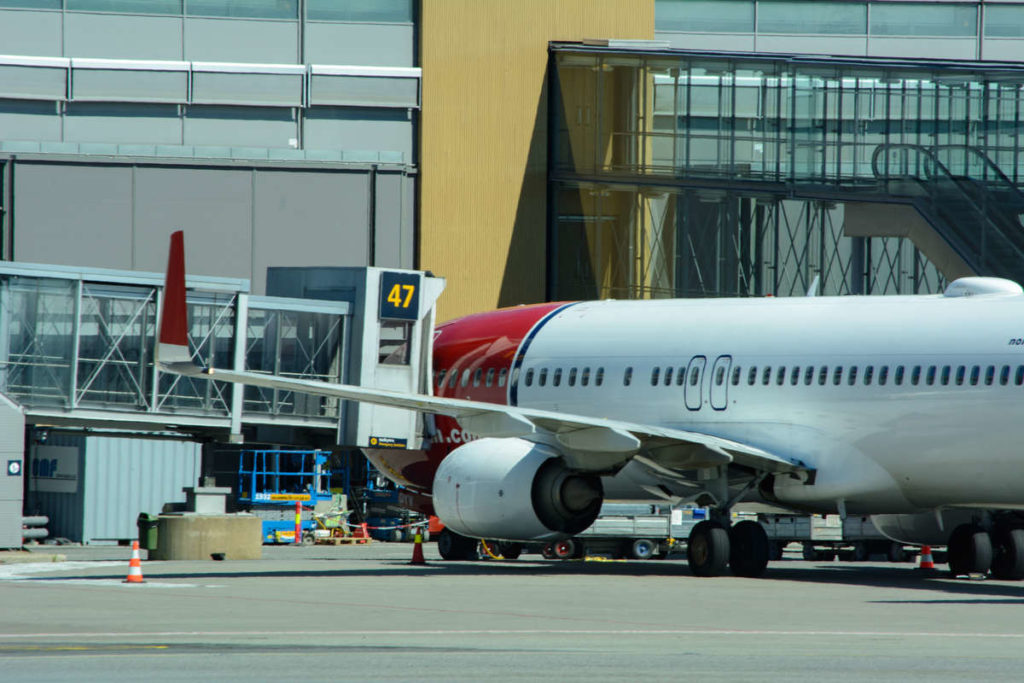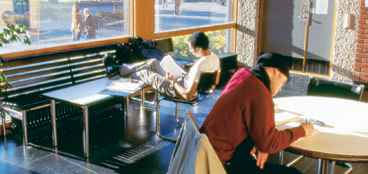Labour market trends Unemployment in Norway has been among the lowest levels in Europe for a number of years. In April 2010, NAV (the Norwegian Labour and Welfare Administration) recorded unemployment rate of 3.2 per cent.

Norway experienced an economic upturn in 2006 and 2007. However, towards the end of 2008 Norway also fell victim to the global financial crisis and 2009 was characterised by numerous lay-offs and increasing unemployment. The demand for labour varies in different sectors. The structure of employment varies considerably from one Norwegian county to the next. Public services and the fisheries are the dominant sectors in the northern part of Norway, while industry accounts for a large share in the coastal counties in southern Norway. Many people in the cities of Oslo, Bergen and Trondheim work in financial and business services. The regional variation is smaller in other sectors, such as building and construction. More information about the labour market in Norway is available from: NAV (The Norwegian Labour and Welfare Administration) www.nav.no NAV EURES (European Employment Services) www.eures.no These sites also publish factsheets on the following sectors:
• Petroleum • Fisheries • Building and construction
• Health • Maritime • Tourism
• Transport • Shipbuilding
The European Job Mobility Portal contains up-to-date information in several languages about the labour market in Norway. Labour market statistics are available from Statistics Norway: www.ssb.no
At the NAV office you can obtain information on, e.g.: • Job vacancies • Transferring unemployment benefit to and from Norway • Education opportunities in Norway • How to apply for jobs • How to register as a job seeker • The labour market situation • Rights and obligations of unemployed persons in Norway At most NAV offices you can use the telephone to call potential employers, use a computer to write your CV/job application, search for vacancies on the Internet and photocopy diplomas and references. These services are free of charge. Private recruitment agencies Foreign job seekers have the option of signing up with private recruitment agencies. The recruitment agencies often specialise in particular industries and professions. The agencies are listed in the Yellow Pages on the Internet: www.gulesider.no (search for “rekruttering” or “vikartjenester”).
Networking Using personal contacts and networking are vital for anyone looking for work. This improves your chances of getting a job because people know you already and know that you are looking for work. This is also a way of picking up on vacancies on the informal market. Many people use social networks to build up a network of business contacts and job opportunities. Becoming a member of a club, association or voluntary organisation is a good way of building up a network. Summer jobs In Norway summer jobs are listed on the Internet. See www.nav.no (use the search word “sommer” or “ferie” in the free text field) and http://eures.europa.eu. Many summer jobs are advertised as early as in February, so don’t delay! Starting your own business For those wishing to start their own business in Norway, a lot of useful information is available from the Company Information Service, see: www.bedin.no. They also have a telephone information service, called Narvikstelefonene: +47 800 33 840.
You can find information about what you ought to consider before starting your own company and answers to frequently asked questions about registering your own company at: www.spor-oss.no. You can contact the local office for Commerce and trade (Næringsetaten) in the municipality you will be residing in. They will give you information on how to proceed.
How to find a job in Norway,The EEA Agreement
(the agreement on the European Economic Area) enables job seekers, students and self-employed persons, as well as their family members, from other EEA member states to take up residence, work and study in Norway.
Some of NAV’s services are available from abroad. The employment services in all of the EEA member states exchange information in a European network called EURES (European Employment Services) concerning working and living conditions in the respective countries. EURES has a database of job vacancies within the EEA, the European Job Mobility Portal: see http://eures.europa.eu.
Your local employment office in your home country will be able to refer you to the nearest EURES adviser in your region for information about vacancies in Norway. Internet The majority of vacancies in Norway are listed on the Internet. NAV’s website, www.nav.no, contains the biggest jobs database in Norway. Here you can search for jobs, register your CV and record permanent jobs searches. The service is in Norwegian. You can also search in various languages for jobs in Norway at http://eures.europa.eu.
Many Norwegian companies have their own websites, and these sometimes advertise vacancies not featured anywhere else. Use the Norwegian on-line Yellow Pages to find addresses: www.gulesider.no. You can also look for jobs in Norway on the website of the employment services in your home country. NAV Service Centre EURES Job seekers can ring the NAV Service Centre on tel.: +47 800 33 166 (Monday- Friday, 8 am to 6 pm) to enquire about vacancies.
It makes things easier if you have thought about what kind of job you are looking for and where in Norway you want to live, before contacting the NAV Service Centre. The Service Centre can provide information about NAV EURES services, and help in locating EURES advisers. You can contact NAV Service Centre EURES via email: eures@nav.no. EURES advisers NAV EURES and the EURES advisers in Norway can provide you with information about the labour market, how to apply for jobs and about working and living conditions. In Norway EURES is part of NAV. If you want more information, you can contact NAV EURES in the region in which you are applying for work.


You can find the addresses of the EURES advisers from www.eures.no/english: find EURES adviser or from http://eures.europa.eu. You can also contact a EURES adviser via NAV Service Centre EURES. General job applications Norway also has an informal market for job vacancies, i.e. vacancies that are not registered with any organisation or otherwise advertised. To pick up on these vacancies, one way is to send out general job applications to any company of interest.
You should also make a follow-up call to the company after you have sent your application. If you want to send a general job application to selected companies, you can search for addresses on the Norwegian on-line Yellow Pages at www.gulesider.no. In some sectors it is not unusual to turn up in person at companies to ask for a job. Remember to bring your CV, in Norwegian or English, with references and diplomas, etc. Make sure that you talk to the staff in the personnel office.
Media Many Norwegian newspapers advertise job vacancies. The largest national newspaper for job listings is Aftenposten. Most jobs are also listed on www.finn.no/jobb. All the positions advertised in Norwegian newspapers are also registered at the NAV (+47 800 33 166) and published on the Internet at www.nav.no. You can find an overview of Norwegian newspapers at www.norske-aviser.com. Trade Unions Trade Unions are good sources of information. Unions in your own country may have links with their counterpart organisations in Norway. Membership of a trade union is not obligatory, but is very common. Some unions publish magazines that advertise vacancies in their industry.
Checklist – moving to Norway

Foto: Firmafotografen Oslo
Citizens of EEA member states may travel to Norway to look for work for up to six months.
Here is a checklist of things to consider and necessary preparations before moving to Norway. Note that different rules may apply if you are regarded as resident in Norway, a commuter, or working under contract to a foreign company. Contact the responsible authority for further information particular to your situation.
• It is important that you bring your passport/valid ID card, diplomas and reference certificates (preferably in Norwegian or English).
• Even if you are in Norway only to look for work, you may be asked to prove that you have adequate financial means both for the duration of your stay and for your return travel.
• Contact EURES advisers in your home country. They have information about the formalities you need to complete before travelling to Norway, and will also be able to obtain information on vacancies in Norway from the European Job Mobility Portal: http://eures.europa.eu.
• Find out if special accreditation is required in order to practise your profession or trade in Norway. (For more information see the section on education below).
• Make arrangements with former employers or colleagues in your country who can provide references. Norwegian employers will normally wish to contact them. It is an advantage to cite references who can speak a Scandinavian language or English.
• Norwegian employers often require a reasonable proficiency in the Norwegian language. In some sectors, English will be sufficient. (For more information see the section on language above).
• Contact your local employment, social security and tax office to find out how going to Norway will affect your status as regards taxes and benefits, and be sure to obtain the appropriate forms.
You may also wish to contact the Norwegian embassy in your home country for further advice before leaving for Norway. For addresses see www.norway.info. Living and working If you are a citizen of an EEA member state and have a valid ID card or passport, you have the right to live in Norway for 3 months. The same is true for family members who are citizens of an EEA member state. If you want to stay in Norway for more than 3 months you must have a basis for staying and be registered with the police. You must have a valid ID card or passport and otherwise be able to document that you will not be burden on public welfare schemes. If you are an employee, you must produce proof of employment or an employment contract.
You may register online at www.selfservice.udi.no. After this you must appear at your nearest police station or a service centre for foreign workers to submit the necessary documents in order to complete your registration. Once you have registered, you will receive proof of registration. This is issued free of charge. Separate rules may apply to nationals of Bulgaria and Romania who wish to take up employment in Norway. Please check with the Norwegian embassy/consulate in your home country, the Norwegian Directorate of Immigration (UDI) or a police station in Norway.
LO – the Norwegian Confederation of Trade Unions is the largest confederation of trade unions. This organisation can provide an overview of the various trade unions in Norway, depending on the sector you work in. UNIO is Norway’s second largest trade union confederation. UNIO has many members who work in teaching, nursing and the police. Another trade union confederation is Akademikerne, whose members are professionals with higher education. YS – Yrkesorganisasjonenes Fellesforbund – is another large trade union confederation. YS consists of 23 federations covering different employment sectors.
More information about your right to stay and the registration scheme is available in several languages from the Directorate of Immigration. For addresses of police stations in Norway, see: www.politi.no. For Norwegian embassies/consulates, see: www.norway.info.
Registering moves Everyone who moves within a municipality, between Norwegian municipalities, to Norway from abroad or from Norway to another country must notify their tax office. Depending on the length of your stay, your tax office will provide you with either a provisional D number or a personal ID number. For further information and addresses, see: ww.taxnorway.no. Tax When you work for a Norwegian employer you are required to pay tax in Norway.
Bring your employment contract and passport along to the nearest tax office to your Norwegian place of residence and apply for a tax deduction card (skattekort). Once you have been issued with a standard personal ID number or a D number you will then be issued with a tax deduction card to hand in to your employer. For more information and addresses, see: www.taxnorway.no. Social security Your employer registers you with the National Insurance Service. Meanwhile you will find a lot of useful information about sick pay, child benefit, pensions etc on www.nav.no. If you are entitled to child benefit, you will need to apply for this directly from your NAV office. European health insurance card You can contact Helfo to apply for a European Health Insurance Card which you will need in case of illness during travel to other EU/EEA countries.
For more information and addresses, see www.helfo.no or contact the HELFO Service Centre: Tel: 815 70 030 or +47 33 51 22 80 from abroad. Customs The brochure «Moving to Norway» provides a summary of the most important information to be aware of. This brochure, as well as information regarding the importation of motor vehicles and registration tax on these, is available at all Customs offices and on the Internet. If you are intending to import a car to Norway you will be required to pay import tax.
There are also rules concerning temporary use of a vehicle registered outside Norway. For rules concerning importation of cars, household effects, quotas, food, animals, etc., see the Norwegian Customs and Excise website: www.toll.no or contact one of the Norwegian Customs Service centres on: Tel: 03012 or, from abroad, +47 22 86 08 50, or via email to oslo@toll.no.
Bank accounts If you want to open a bank account, you should contact a bank for information and advice. To open a bank account, you must bring along your passport, a passport photo, and your personal ID number or D number. It is a good idea to make enquiries at several banks so you get the best terms.


Unemployment and social insurance
(Folketrygden) During your employment in Norway you are covered by the Norwegian Social Insurance Scheme (Folketrygden). All persons working and paying taxes in Norway are compulsory members of the social insurance scheme. Premiums are paid as part of tax deductions and amount to 7.8% (in April 2010) of your private income. The employer deducts yourpremium from your salary.
Persons who are not working in Norway, but who hold a residence permit for a year or more are automatically covered by the social insurance scheme. The benefits of social insurance include retirement pension, disability pension, occupational injury compensation, child benefit, unemployment benefit, pregnancy allowance and parental benefits. Unemployment benefit while looking for a job in Norway (E-303) Unemployed persons who are entitled to unemployment benefit in their home country for at least four weeks before departure can have their benefit transferred and paid out in Norway.
Contact the local employment office in your home country and explain your intention to look for work in Norway. You will be required to fill in a standard form, which will be forwarded to the employment services in due time before departure. If you qualify for unemployment benefit in another country, you will be issued with a form an E-303 certificate before departing for Norway. This certificate ensures the payment of your unemployment benefit for up to 3 months.
On arrival in Norway, you should bring this document to register at the nearest NAV office within 7 days of departure from your ordinary country of residence. Be sure to bring sufficient money to last you in Norway; it may take time before the first benefit payment is made. The legislation stipulates that if you register later than 7 days after leaving home, the benefit will be calculated from the date of registration at the NAV office in Norway. Be prepared to adapt to new rules and procedures.
You will be obliged to comply with Norwegian legislation, reporting requirements and other procedures particular to Norway. If you do not find a job in Norway by the end of the E-303 period, you must return to your home country in order to retain your entitlement to unemployment benefit. Transfer of unemployment benefit (E-301) If you become unemployed in Norway and do not fulfil the requirements for unemployment benefit here, you may request that any rights you have earned in another EEA country to be transferred to Norway.
In this case you will need an E-301 certificate from the country you have been working in for the last 3 years. Your application for unemployment benefit must be submitted to the nearest NAV office in Norway. If you are planning to leave Norway and require form E-301 for transfer of rights from Norway, contact your NAV office for an application form.
Information about form E-301 is also available from the NAV EEA Unemployment Benefit Administration. Unemployment benefit in Norway If you become unemployed, you must immediately report to your NAV office and apply for unemployment benefit, assuming you have earned such rights. Further information is available from NAV. You can register as a job seeker online at www.nav.no. Note that this service is available in Norwegian only, and that you need a Norwegian ID number or a D number as well as a local address. If you are temporarily laid-off, contact your nearest NAV office for information about your right to receive unemployment benefit.
Social security EEA regulations coordinate the law regulating rights to social insurance in the various member states in order to ensure continuous cover.
The main object of the regulations is to ensure that you are not deprived of any benefits to which you are entitled. Being employed in Norway entitles you (and, as a rule, your immediate family) to the same rights as Norwegian citizens. You may be entitled to social insurance in connection with illness, maternity, children, disability, and old age retirement pension. In Norway we have a system whereby all persons resident in Norway have the right to a general practitioner as their assigned doctor for all consultations (Fastlegeordning).
For information about this system, and about how to register with a doctor, see www.helfo.no or call the county medical coordination office (fastlegekontor) on: +47 810 59 500. Contact your NAV office for further information about social insurance or see www.nav.no.
You can also call NAV’s service number for information in Norwegian, English and Polish. Tel.: +47 810 33 810. Pensions Persons who have worked in two or more EEA countries may accumulate rights to a state pension in each country. See www.nav.no for further information or contact your NAV office or NAV International. Occupational injury As an employee in Norway you will be covered by the legislation on compulsory insurance against occupational injury.
This means that you will be insured through your employer in the event of any accident at work. In the event of a workrelated accident you (or your employer) should contact the authorities through the Norwegian Labour Inspection Authority.
(See the section on employment terms and conditions.)

Employment terms and conditions
You are entitled to the same pay and employment terms as Norwegian employees when you are employed in Norway. Employment contract You are entitled to a written employment contract whether your position is permanent or temporary. Make sure you understand all the terms and conditions applying to the job and the stipulations of the contract. Find out how and how often you will be paid, study the terms for giving notice and other points relevant to your employment. See www.arbeidstilsynet.no for a sample employment contract.
Employment normally starts with a probationary period, as confirmed in a written contract. The length of the probationary period must be agreed in advance, the maximum duration being six months. Normally you or your employer can terminate the contract on notice of 14 days during that period. Working hours in Norway are up to 40 hours per week, i.e. an average of eight hours a day for five days a week. Groups with inconvenient working hours, such as shift workers, have slightly fewer weekly hours as a rule Most offices have working hours from 8 am to 4 pm.
Working hours may vary depending on the type of business/ industry, with some starting at 7 am and others at 9 am. Work in excess of 40 hours a week is considered overtime and is payable by at least an additional 40% when imposed on the employee. However, there is no legal requirement for overtime pay for staff in senior positions. For the regulations governing overtime, contact the Norwegian Labour Inspection Authority.
Pay In essence, it is up to you and your employer to agree on your pay. In some sectors, such as the construction, shipping and shipbuilding industries, a statutory minimum wage has been introduced. In many other instances, there are collective agreements on pay between trade unions and employer organisations. This means that, through membership of a trade union, your pay will be determined by a pay-scale agreement. Pay/wage statistics for different occupations are available from www.ssb.no.
The Working Environment Act Norway has a Working Environment Act governing the rights and obligations of employees and employers. The purpose of the act is to protect employees against physical or mental injury, and to ensure proper, safe and healthy working conditions for all. An English translation of the act is available to order from the Norwegian Labour Inspection Authority’s website. Brochures on work and holiday legislation and one called “Welcome to Norway as a new jobholder” are available in several languages from the Norwegian Labour Inspection Authority.
If you have any concerns about your workplace, you should always raise these with your supervisors first. If this does not produce results, contact the safety delegate (verneombud), the staff representative (tillitsvalgt) or the union. If no solution is found, you can contact the Norwegian Labour Inspection Authority (Arbeidstilsynet) for advice and assistance.
Holidays According to the Annual Holiday Act, employees are entitled to 21 working days holiday each year. Most employees, though, are entitled to 25 days holiday. This is not yet a statutory entitlement, but is an agreement between the social partners as a result of the pay settlement. Persons over the age of 60 are entitled to one week extra. Holiday pay Holiday pay must be earned the calendar year before the holiday is taken. Anyone who was unemployed in that preceding year is still entitled to holiday, but not to holiday pay (i.e. they can take holiday without pay). Holiday pay is paid out when the holiday is taken.
There is no entitlement to normal pay instead of the percentage-based holiday pay during holidays. The amount of holiday pay is based on remuneration for work (pay etc.) during the preceding year. Not all payments are included in the calculation. Your payslip tells you how much holiday pay you have earned. Holiday pay amounts to 10.2% of normal pay in the preceding year. For employees over the age of 60, the rate is 12.5%.
If you are covered by the provisions of a collective agreement which grants you a fifth week of holiday, the standard rate is 12%, and for employees over the age of 60, 14.3% (2010). In case of termination of employment, holiday pay entitlements owing are paid out together with the final pay disbursement. Guidance on work and holiday legislation is available in English and other languages from the Norwegian Labour Inspection Authority, see: www.arbeidstilsynet.no. You can also contact a trade union for more information. Taxation Norway has bilateral tax agreements with the other EEA member states to avoid dual taxation. The tax system is comprehensive.
When you work for a Norwegian employer you have to pay tax here. Your local tax office will provide further information. The employer is obliged to deduct tax from your salary before you are paid. Your local tax office in Norway will, on request, issue you with a tax deduction card, which you should present to your employer as soon as possible. The tax deduction card states what percentage of your income your employer must deduct in tax. If you start working without a tax deduction card, your employer is obliged to deduct 50% tax.
This is normally more than you would pay based on your tax deduction card and the excess will be refunded to you in the following year. Your payslip tells you how much tax you have paid each month. The amount of tax you have to pay depends on how much you earn and any tax allowances, but as a rule of thumb in Norway, tax amounts to around one third of your gross pay. Your contribution to the National Social Insurance Scheme is included in your tax.
The Norwegian Tax Administration’s website features a taxcalculation program (in Norwegian only
• Class 1, for single persons and for most married couples where both have an income.
• Class 2, for single parents and for married couples where only one person has an income. Persons temporarily resident in Norway may be granted a standard tax-free allowance of 10% percent (and a maximum of NOK 40 000 as of 2010).
This means that 10% is deducted from your gross earnings before the tax rate is applied. To be eligible for this allowance, your residence in Norway must not exceed two years. If this applies to you, ask about this at your tax office when you apply for your tax deduction card. Tax return In Norway, tax is paid on income for the current year, i.e. deductions from your salary are based on an estimate of how much you are going to earn. By April 30th each year you are required to submit a tax return. This is normally filled in advance by the tax authorities and mailed to you in April. You should check all the details in the tax return before returning it to the tax authorities.
For this you will need a pay and deductions statement from your employer and other relevant documents from your bank, etc. With the tax return form you also receive a booklet in Norwegian with instructions on how to complete the tax return form. The local tax office may also offer assistance on completing the form. Other regulations may apply to commuters or employees on assignment in Norway. Contact the Central Office of Foreign Tax Affairs (Sentralskattekontoret for utenlandssaker) for more information. For updated tax and allowance rates and more information about taxation, contact a tax office or see: www.taxnorway.no.

School system in Norway
All compulsory education in Norway is free. Young people who have completed their compulsory schooling are entitled to 3 years upper secondary education. All counties in Norway have university colleges, and there are seven universities in Norway Preschool child care Children under the age of six can be placed in a child care centre. Child care centres are places where children can be while their parents are at work.
You have to pay for your child to be there. Norway has both public and private child care centres. However, in some municipalities there is a shortage of institutions and it can be difficult t get a place. Contact the municipality you will be living in to apply for a child care place. The costs and admission rules can vary. The admission process usually takes place once a year.
Public schools Children start school when they are six years old (1st grade) and finish their compulsory education after 10 years (10th grade). Compulsory schooling is divided into two main phases. The first 7 years of compulsory schooling (1st – 7th grade) are called primary school, and the next 3 years are called lower secondary school (8th – 10th grade). All young people between the ages of 16 and 19 then have the right to attend upper secondary school.
This leads to either a vocational profession or qualifications for pursuing higher education. Upper secondary school is also free. All children who are going to stay in Norway for longer than 3 months have a right and obligation to attend school. Contact the municipality you will be living in for more information and for the addresses of schools. It is a good idea to contact the school before you move to Norway, so it is prepared to receive a new pupil. Pupils in compulsory schooling whose first language is not Norwegian are entitled to special Norwegian language tuition. Higher education Higher education comprises universities and colleges, and admission is normally based on a diploma after attending three years of upper secondary school.
Norway has universities in:
Oslo, Ås, Bergen, Stavanger, Trondheim, Kristiansand and Tromsø.
Additionally, there are technical colleges specialising in various sciences:
• Norges Handelshøyskole (Norwegian School of Economics and Business Administration)
• Norges Musikkhøyskole (Norwegian State Academy of Music)
• Norges Idrettshøyskole (Norwegian College of Physical Education and Sport)
• Norges Veterinærhøyskole (Norwegian School of Veterinary Medicine)
• Arkitektur- og designhøgskolen (Oslo School of Architecture)
Each county in Norway also has its own university college offering various types of education or training, as well as private colleges. For more information about education in Norway, see: www.norway.no. The Norwegian Universities and Colleges Admission Service (NUCAS) coordinates ad- mission to universities and university colleges in Norway. You will find an overview of courses on www.samordnaopptak.no.
Approval of foreign qualifications Information about recognition of higher education from abroad is available from Norwegian Agency for Quality Assurance in Education (NOKUT). An application for recognition of a foreign qualification/ education should be sent to NOKUT. NOKUT liaises with a network of similar centres in the other EU/EEA member states. More information and application forms are available from NOKUT. of a particular higher education from another EU/EEA member state can also be addressed directly to the appropriate university college/university in Norway. Information on vocational training is provided by the county board/office for vocational training in the individual county administrations (Yrkesopplæringsnemda/ fagopplæringskontoret).
Addresses and telephone numbers for the county administrations are available from www.norway.no. As a rule, any accreditation obtained in one EU/EEA country will be recognised by the other member states with no additional assessment required. Who requires authorisation or accreditation?
• Applications for authorisation to work in the health sector must be submitted to the national authorisation office for healthsector personnel (Statens autorisasjonskontor for helsepersonell – SAFH).
• Finanstilsynet (The Financial Supervisory Authority of Norway) is responsible for accrediting accountants, state-authorised estate agents, debt collection agencies, and for authorising accountants. • Mattilsynet (The Norwegian Food Safety Authority) authorises veterinary surgeons and marine biologists.
• Tilsynsrådet for advokatvirksomhet (The Supervisory Council for Legal Practice) is responsible for approving lawyers.
• The Norwegian Maritime Directorate authorises a number of professional positions in the maritime sector.
• Civil Aviation Authority – Norway is responsible for accrediting pilots and aircraft technicians.
For a list of all regulated professions, see www.invia.no. Studying in Norway Students from other EU/EEA countries are allowed to study in Norway. Information can be found on www.studyinnorway. no. Maintenance costs during studies in an EU/EEA country must be covered by the student or by a grant/loan. Through the EEA agreement, Norway has joined the EU member states in a number of programmes related to education and research.
The most comprehensive programmes are Leonardo Da Vinci and Erasmus. For more information about these programmes, see the EU Commission’s website: www.europa.eu or www.siu.no. The Norwegian Government’s official website contains further details and documentation about the Norwegian educational system as well as useful information on many other topics in English: www.regjeringen.no.


Housing in Norway
The cost of housing varies a great deal in Norway and has risen in recent years. The highest prices are in Oslo and other cities; in rural areas the prices are generally lower.
The cost of housing in Norway is generally high for several reasons: houses are of a high standard, fully insulated, with heating in all rooms because of the cold climate. In addition, quality requirements are high, which means that there is little simple and inexpensive housing available. There are several ways of securing accommodation in Norway.
You can rent, live in a housing cooperative, or own your own home. The rental market in Norway is quite small. The vast majority own their own home. Houses and flats are usually advertised on the Internet, in local newspapers and in the national newspaper Aftenposten. Some newspapers publish housing supplements one day a week and publish housing adverts on the Internet. You can also advertise for accommodation yourself.
Estate agents usually sell houses/flats, though some also provide rental services. You can find these in “Gule sider” (www.gulesider.no) under “Eiendomsmegling”. If you want to rent a house or flat, you should ensure you have a signed tenancy agreement, with a mutual right to terminate it. The period of notice is usually one month, and as a rule you will need to pay a deposit of 1-3 months’ rent.
The deposit should be paid into a blocked account. Standard tenancy agreements can be bought from bookshops, found on the Internet, or obtained by contacting the Leieboerforeningen, www.lbf.no. This is a special interests organisation that protects the interests of tenants who rent houses and flats. Tip: Check if your future employer can help you find accommodation.
Sources: NAV (nav.no)

